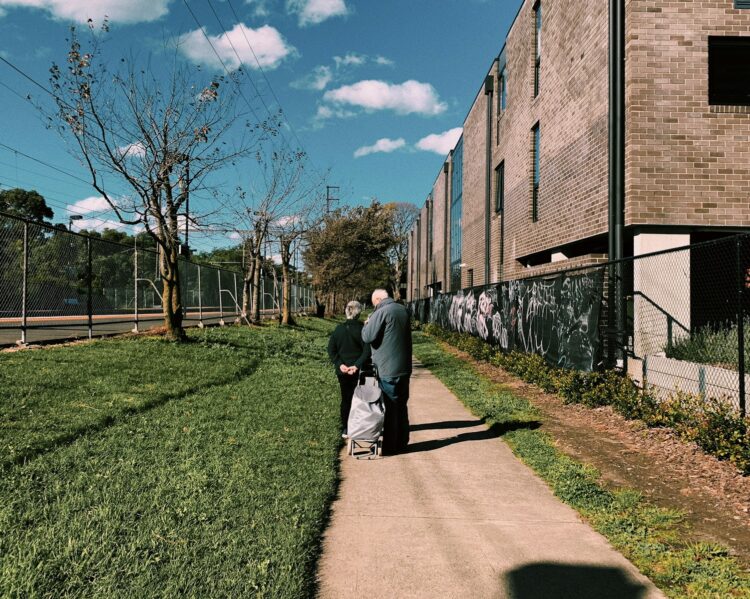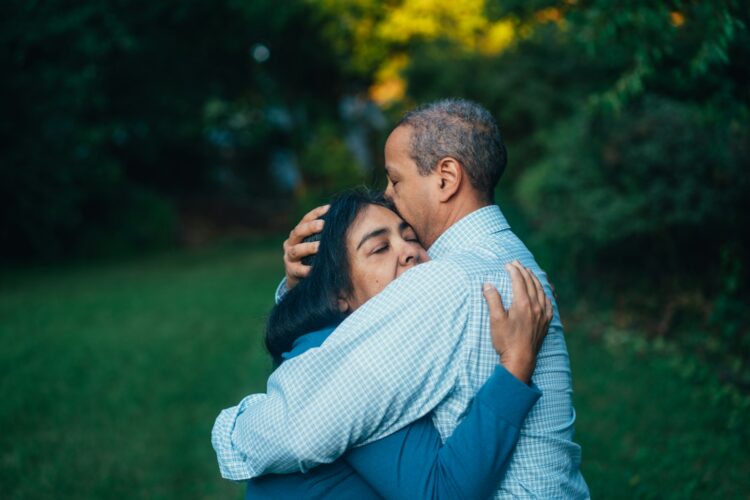
Love doesn’t always stay soft and sparkly. After years of marriage, you learn it’s not about perfect moments—it’s about holding on through the imperfect ones. The kind of love that lasts isn’t found in fairytales. It’s built, tested, and redefined over time. These 15 hard truths don’t show up right away, but once they do, they change the way you see love forever.
The butterflies fade—but the quiet love matters more.

In the beginning, your heart races just from a look. But those butterflies calm down over time, and what’s left isn’t thrilling—it’s steady. And that’s what you learn to treasure. It’s in the way they bring you tea without asking or how they sit beside you during bad news. It’s quieter, yes—but it’s deeper, stronger, and lasts longer than all the fireworks could.
You won’t always like each other, but you still choose each other.

There are days when you’re frustrated, tired, or just irritated. You’ll say the wrong thing, or they will. And love doesn’t feel romantic on those days—it feels like a choice. You learn that not liking each other for a moment doesn’t mean you’ve stopped loving each other. It just means you’re human. And the beauty is in showing up anyway, even when it’s hard.
Love isn’t 50/50—it’s whatever’s needed that day.

Some days you give more, and some days you take more. It’s never perfectly balanced, and trying to keep score only makes you bitter. The truth is, real love means picking up the slack when your partner can’t and trusting they’ll do the same for you. It’s not about being equal every moment—it’s about showing up with grace, not keeping tabs.
Little things become big things over time.

It’s not the grand gestures that make or break a marriage—it’s the daily stuff. Leaving dishes in the sink, always being late, forgetting to say thank you—it seems small until it piles up. Over time, little habits can either build love or chip away at it. You learn to pay attention, to show care in the quiet details because they matter more than you think.
Your partner will change—and so will you.

The person you marry won’t stay exactly the same. Life changes you, challenges you, and pushes you in new directions. You might fall in love with different versions of each other over the years, or feel like strangers for a while. The truth is, marriage means falling in love more than once—with the same person and sometimes with someone who’s grown into someone new.
Love doesn’t fix everything—some problems stay.

You go into marriage hoping love will heal all wounds or smooth over every rough edge, but after years together, you learn that some problems don’t go away. Some issues resurface, some habits don’t change, and some disagreements never get fully solved. But instead of giving up, you learn to live with the hard parts, manage them, and focus on the things that actually can grow.
Intimacy means more than physical closeness.

At first, love might feel like physical attraction and sweet touches, but over time, intimacy becomes something deeper. It’s in the way you can sit in silence and still feel connected or share a worry and know they’ll understand. True closeness is emotional—it’s about being fully seen and accepted. And after years of marriage, that kind of intimacy becomes more meaningful than anything physical ever could.
Apologies without change lose their power.

You quickly realize that saying “I’m sorry” isn’t enough if nothing actually changes. After a while, repeated apologies start to sound like empty promises. What matters more is follow-through—doing better, being better, and showing with actions that the words mean something. In a long-term relationship, growth matters more than guilt, and you start to value effort over just saying the right thing.
You’ll have seasons where love feels like work.

Marriage isn’t always a soft place to land. Sometimes, love feels like showing up when you’d rather shut down or trying again when everything feels off. There are seasons when nothing is romantic, and everything is routine. But the work you put in during those hard times? That’s what keeps the whole thing alive. It’s not always magical, but it’s always worth it if you both keep trying.
You can love deeply and still feel alone sometimes.

Even in a strong marriage, there are moments when you feel misunderstood, distant, or emotionally out of sync. You could sit next to your person and still feel like there’s a space between you. It doesn’t mean the love is gone—it just means connection takes effort. After years together, you realize love isn’t the absence of loneliness—it’s the willingness to close the gap repeatedly.
Resentment grows quietly, and forgiveness isn’t always instant.

You don’t always yell or argue. Sometimes, you just swallow things and let them sit. But the problem is, unspoken hurt doesn’t go away—it builds. And when you’ve been together for years, even small things can turn into emotional distance. You learn that resentment creeps in slowly and that real forgiveness takes more than words—it takes time, effort, and mutual care to move forward truly.
You won’t feel “in love” every single day—and that’s okay.

There will be days when love feels dull or distant, when your partner irritates you, or when you feel like roommates instead of soulmates. You stop expecting every day to feel magical. What matters is not the constant high—it’s the trust that you’re still in it, even when it’s quiet or messy. Being committed when it’s boring or hard? That’s what long-lasting love is made of.
You both bring baggage, and unpacking it is lifelong.

You come into marriage with past pain, family patterns, fears, and expectations. So does your partner. And over time, those things surface—often in ways you don’t expect. You learn that love means helping each other unpack what you’ve carried slowly and patiently. It’s not your job to fix everything, but you do become part of the healing. That’s how deep love gets built: one layer at a time.
Marriage needs boundaries just as much as closeness.

It sounds strange initially, but being close doesn’t mean completely merging. You still need time alone, space for your interests, and breathing room. After years of marriage, you understand that loving someone doesn’t mean losing yourself. Healthy boundaries protect both people and make love stronger, because you’re choosing each other freely, not out of pressure or dependency.
You have to keep choosing love, over and over again.

Love that lasts isn’t automatic. You’ll go through grief, change, stress, and unexpected detours. And through all of it, you’ll be given the same choice again and again: stay soft or shut down, forgive or hold on, connect or retreat. After years, you learn that love isn’t just something you feel—it’s something you keep choosing, even when it’s inconvenient. That’s what makes it real.

